Wood, fire, earth, metal or water: Which of the Chinese 5 elements are you and what does it mean for your health?
Quick overview
- Five elements theory is a framework used in traditional Chinese medicine (TCM) to explain how we’re influenced by the world and weather around us, and how the organs of the body interact with each other.
- Take our quick quiz to discover your constitution according to TCM
- Learn what each element means for your personality, health, diet and lifestyle.
What is Chinese medicine’s five elements theory?
Five elements theory (also known as five phases theory) is a framework that’s been used for at least 2400 years in traditional Chinese medicine to explain how we’re influenced by the world and weather around us, and how the organs of the body interact with each other.
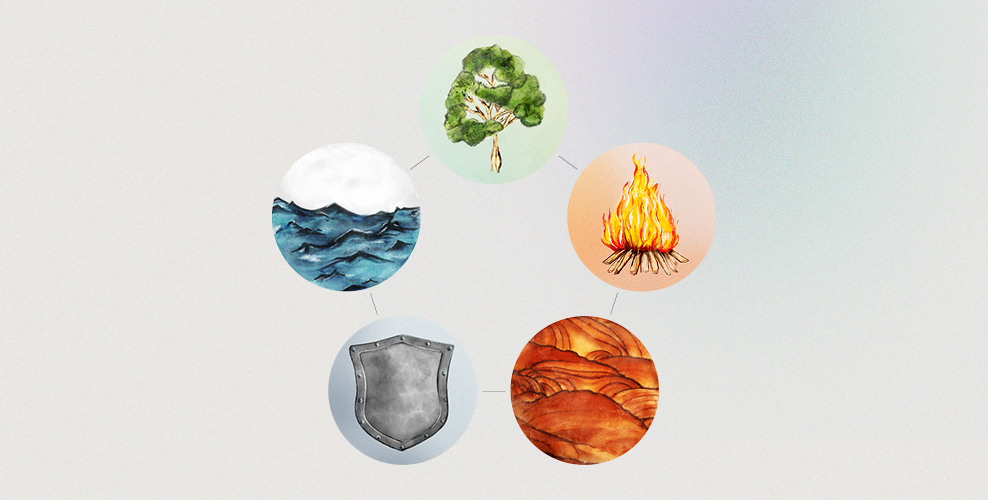
The five elements or ‘phases’ are wood, fire, earth, metal and water. In TCM, each of them is associated with certain body organs, a colour, a taste, an emotion, and a season of the year – among other things!
From the perspective of TCM, understanding which of the five elements has a dominant effect on you right now, can give you insight into your personal strengths and weaknesses.
If you’re feeling imbalanced, low in energy, or simply out-of-whack, understanding the elemental influences at play is also a quick way to help you know the kind of imbalances to watch out for, and guide you to simple steps you can take to restore harmony and balance.
Take our quick quiz to determine your five elements body type according to Chinese medicine, then read on to learn more.
Which of the five Chinese elements body types are you? Take the quiz and find out!
In the four questions that follow, don’t worry if none of the options is exactly right, just tick the one that fits you the best. Once you’ve finished the quiz, total up your ticks against the answers (A, B, C, D or E) to refer to later.
1. Which of these is the best description of your body?
2. Which of these is the best description of your personality?
3. How do you respond to different types of weather?
4. When you’re out of balance, which group of symptoms are you most likely to experience?
Discover what your answers mean below!
Review your answers and determine whether your most common answer was A, B, C, D or E.
- Mostly A? Click here to jump to the Wood section
- Mostly B? Click here to jump to the Fire section
- Mostly C? Click here to jump to the Earth section
- Mostly D? Click here to jump to the Metal section
- Mostly E? Click here to jump to the Water section
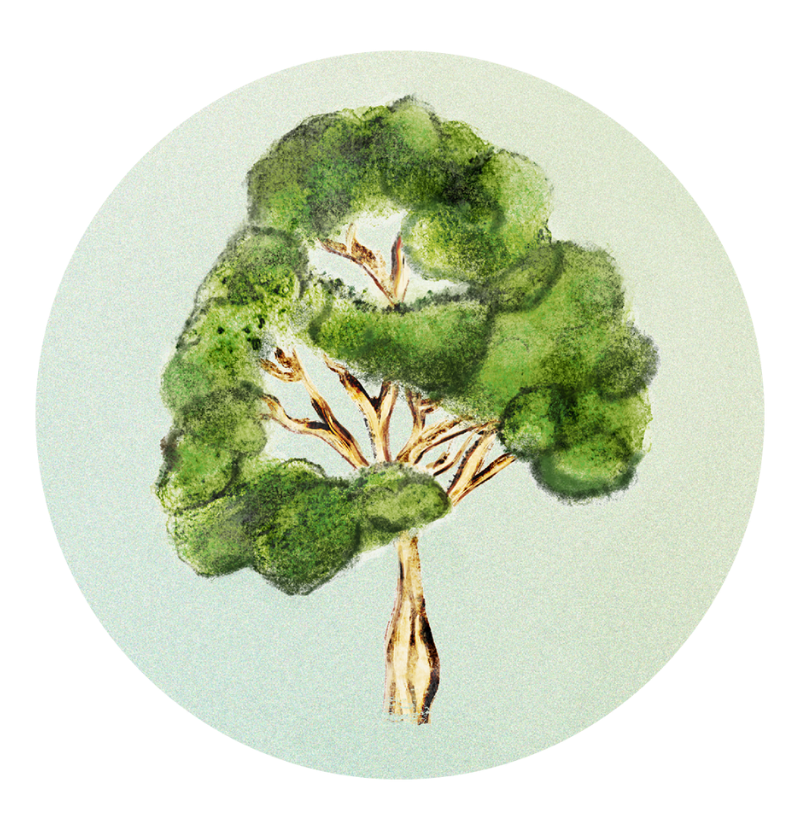
Chinese 5 elements: wood
What does being influenced by the wood element say about you?
When you’re in balance, you’re a kind-hearted soul who excels at creating clear visions, goals and plans, and can pride yourself on your decision-making skills.
Much like a tree, your tendency is to focus upwards and outwards. You’re always striving for growth and expansion, and looking for new challenges to overcome.
You thrive under pressure and may have what’s sometimes called a ‘type A personality’, meaning that you’re hard-driven and hard-working. You may even have a tendency to overdo things on that front, so guard against making yourself unwell due to overwork. A balance of work, rest, play and adventure is essential for you to be at your best.
When you’re out of balance, you may find yourself getting stressed easily, perhaps accompanied by tightness in the neck and shoulders and/or a tendency to clench your jaw or grind your teeth.
You might also become irritable, prone to a bad temper, notice that you’re not as decisive as usual or are more likely to over-indulge in food or drink.
Wood rules the liver and gallbladder in traditional Chinese medicine
In Chinese five elements theory, the wood element governs the liver organ-meridian system and that of its partner organ the gallbladder. In TCM the liver is involved in digestion and detoxification, acts as the storehouse for the blood, and ensures that both blood and qi (life force energy) are able to flow smoothly around the body.
If the liver organ-meridian system is out of balance, the liver qi may become stagnant or sluggish.
Bupleurum: traditionally used to relieve liver Qi stagnation
If you’re keen to support healthy liver function, consider taking the herb bupleurum, which is traditionally used in Chinese medicine to soothe liver qi and regulate its flow. Bupleurum is considered especially beneficial for stimulating stagnant qi in TCM; for example, it’s often taken to support gallbladder health and to relieve irritability when liver qi stagnation is present.
Cyperus: traditionally used to relieve PMT symptoms in TCM
When the wood element is dominant in women, liver qi stagnation can sometimes interfere with menstrual regularity and cause period pain and PMT symptoms including breast tenderness. If these are a problem for you, consider taking the herb cyperus. It’s traditionally used in TCM to regulate the flow of liver qi and relieve PMT symptoms, period pain and menstrual irregularity when patterns of liver qi stagnation are present.
Always read the label and follow the directions for use.
Lifestyle tips for the wood constitution
Keep your Qi moving
When it comes to maintaining your health and wellbeing, your primary goal is to look after your liver and keep its qi moving, so incorporate vigorous forms of exercise like running, boxing and Ashtanga yoga into your routine.
Enjoy green foods and sour flavours
Eat plenty of green-coloured foods (especially dark green leafy vegetables) and sour flavours like lemon juice as these are traditionally considered good for the liver in TCM.
At the same time, avoid alcohol, coffee and sugar. When you need a pick-me-up, reach for peppermint tea instead; it’s traditionally used in TCM to soothe the liver and aid its natural detoxification processes.
You might like to check out our Clean eating plan for liver support and other eating tips for liver health from TCM too.
Work hard, rest deeply
Make it a priority to balance your hard-working nature with regular times of rest and relaxation. In particular, it’s important for you to get plenty of sleep (even if your energetic mind says you can do without it!).
Also try relaxing meditation and gentle breathing exercises to help keep you calm and centred.
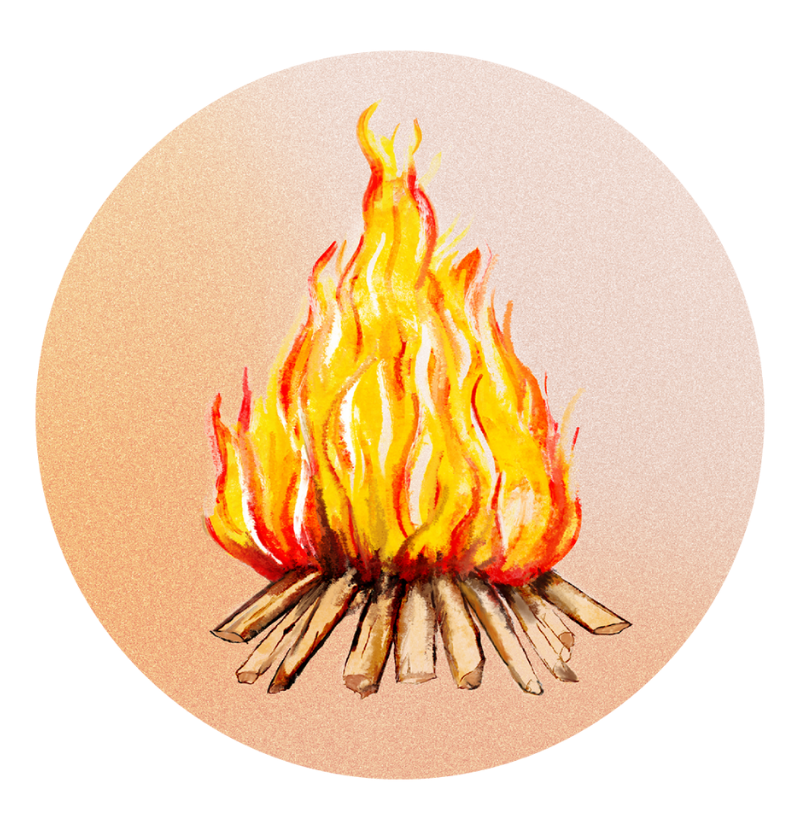
Chinese 5 elements: fire
What does being influenced by the fire element say about you?
You’re energetic, passionate and strong-willed.
You inspire others with your charisma, courage, creativity, wisdom and intuition, helping them to believe that it’s possible for dreams to come true.
Your natural tendency is to be joyful, and to delight in the company of others.
On the other hand, when you’re out of balance, you may become over-excited, experience mild anxiety symptoms or have difficulty sleeping.
Fire rules the heart in traditional Chinese medicine
The Fire element governs the heart organ-meridian system in TCM.
In TCM, the heart organ-meridian system’s functions include regulating the cardiovascular system (including the heart itself, the blood vessels and the blood that flows through them) and maintaining the functioning of the nervous system.
The heart organ-meridian system is also regarded as the resting place or ‘home’ of the shen or spirit in TCM.
Polygala: traditionally used to relax the mind
The herb polygala is traditionally taken to settle the shen, calm the mind, reduce excess nervous energy and relieve mild anxiety symptoms in TCM.
Ziziphus: traditionally used in TCM to calm the mind
Ziziphus is traditionally used in TCM to calm the spirit, and reduce sleeplessness, restless sleep and the time it takes to fall asleep. Like polygala, it’s also traditionally taken to help relax the mind and soothe the spirit.
Always read the label and follow the directions for use.
Lifestyle tips for the fire constitution
Nurture your nervous system
As a fire-spirit, your primary goal is to nurture your nervous system.
Start by taking active steps to manage your stress levels with meditation and relaxation techniques.
Try to end each day with some dedicated wind-down time before bed – for example by doing some gentle stretches or taking a gentle walk before putting your head on the pillow. (You might also like to try our 12 top tips for getting a good night’s sleep).
Stay cool
Next, make sure not to get overheated. Drink lots of water, avoid very hot weather, and include small servings of bitter foods in your diet, as they’re traditionally regarded as having cooling properties in TCM. (Try bitter-tasting salad veggies like rocket for starters).
Enjoy red-coloured foods
Red foods are traditionally considered good for a fire constitution too, so enjoy tomatoes, capsicum, raspberries and strawberries. And when it’s hot, treat yourself to some watermelon, which is traditionally said to cool heat in the heart organ-meridian system.
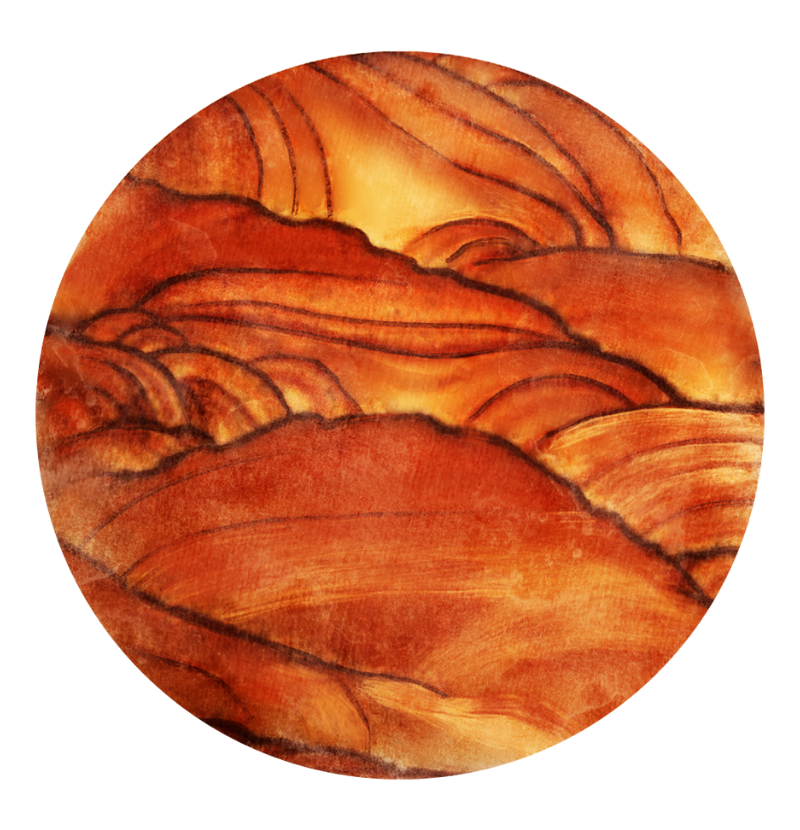
Chinese 5 elements: earth
What does being influenced by the Earth element say about you?
You’re solid, dependable and a loyal friend who excels at forming long-term relationships and deep connections with others. No wonder people regard you as so caring, compassionate and giving.
You value peace, harmony and stability in all things, and you’re often found in a mediation or peace-making role, helping others resolve their differences and arrive at the middle ground.
However, when you’re out of balance, you might find yourself prone to confusion, over-thinking, giving so much to others that you wear yourself out, craving sweets, or experiencing digestive problems.
Earth rules the stomach and spleen in traditional Chinese medicine
The earth element is traditionally understood to govern the stomach and spleen organ-meridian systems in TCM.
These are the organs traditionally considered responsible for most aspects of digestion in TCM, which teaches that when you’re stressed, it’s especially important to take care of your earth element, stomach and spleen in order to maintain healthy digestion.
Citrus peel: traditionally taken to relieve digestive symptoms
In TCM, citrus peel (also known as chen pi) is traditionally used to relieve digestive weakness.
Citrus peel is also taken in TCM to relieve symptoms like nausea, excessive burping, abdominal bloating and feelings of fullness, and is traditionally understood to do that by regulating the flow of qi.
Always read the label and follow the directions for use.
Aromatic spices to warm up your meals
Aromatic herbs like cinnamon, ginger, star anise and cardamom are good options for you too, and can be included in many of your favourite recipes.
If you’re not sure where to start, we recommend our Ginger and shiitake congee recipe. (If you’re not familiar with congee, it’s a form of ‘rice porridge’ that’s regarded as a nourishing comfort food throughout Asia).
Lifestyle tips for the earth constitution
Focus on your digestion
Your primary health goal is to nurture your digestive system, so prioritise simple foods with mild tastes.
In your case, it’s best to avoid consuming food and beverages straight from the fridge or freezer. Foods that are warm or at room temperature are a better option for you - think stews, curries and casseroles.
For additional support of your digestive system health, also consider fermented foods like sauerkraut or kimchi to help replenish the friendly bacteria in your gut, or consider taking a probiotic supplement.
Enjoy yellow-coloured foods, and a little bit of sweetness
The colour yellow and sweet flavours are traditionally associated with the earth element in TCM’s five elements theory, so look for opportunities to include both in your diet. Sweet corn, pumpkin, carrots and sweet potato are excellent options.
Don’t take this as permission to overdose on sweets though - you still need to keep your blood sugar on an even keel! And for earth-dominated people too much sweetness in the diet can interfere with spleen and digestive function in TCM, resulting in symptoms like nausea, abdominal bloating or a feeling of fullness.
Move and meditate to clear your thoughts
When it comes to getting moving, walking is the perfect form of exercise for you because it’s both energising and a great way to clear your thoughts. Give yourself bonus points for walking barefoot on the grass or at the beach, restoring your connection to the earth.
Build meditation and other practices that help break the cycle of over-thinking into your daily routine too. For example, try our short mindfulness meditation to help you focus on being present.
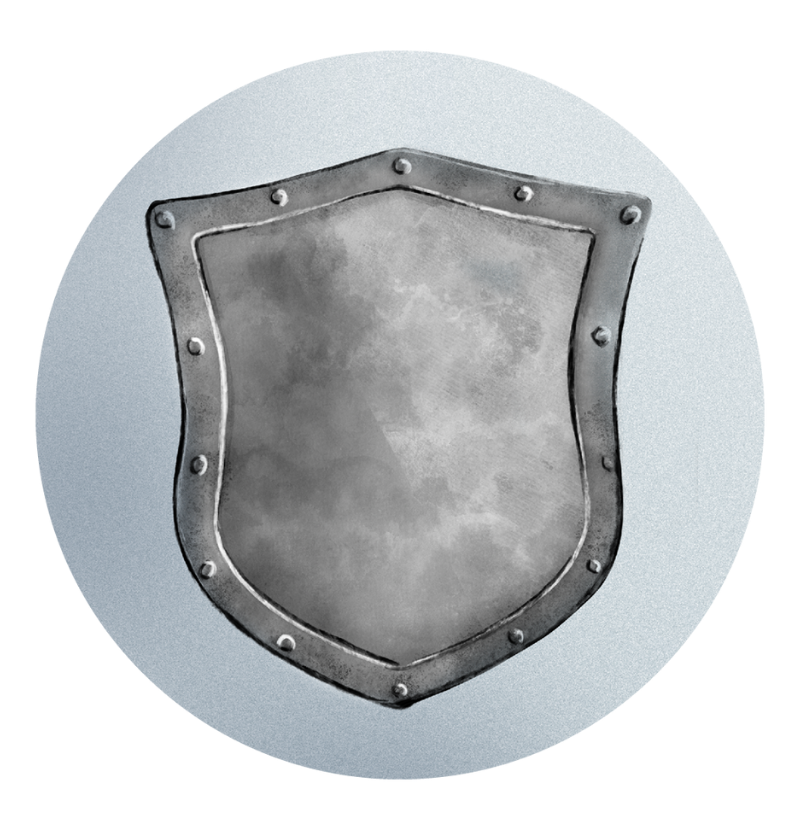
Chinese 5 elements: metal
What does being influenced by the Metal element say about you?
Like many metals, you’re equipped with profound inner strength.
You’re known for your high level of personal integrity, your disciplined, rational approach to life, and your appreciation of beauty.
You’re at your best when things feel rational, organised and structured, and when you take a healthy approach to processing the events that have happened in your life and letting them go.
Disorder and chaos are not to your liking at all, and you may become overly critical at times, especially when you perceive that others are breaking the rules or not doing things the ‘right’ way.
Metal rules the lungs in traditional Chinese medicine
In TCM’s five elements theory, metal is traditionally believed to govern the lung organ-meridian system. This organ-meridian encompasses not only the lungs themselves, but also the nose, throat and skin, and all aspects of breathing, including the absorption of qi (life force energy) from the air.
The lung organ-meridian is also responsible for a special form of qi called defensive qi, which circulates beneath the surface of the body (referred to as the ‘exterior’ in TCM), where it helps defend against illness – in a similar way to the Western medicine concept of the immune system. As a result, having strong defensive qi helps reduce susceptibility to minor illnesses – you might like to think of it as your protective shield.
If metal is a dominant element for you, when you’re out of balance you may become prone to mild respiratory conditions like common colds and flu, or to experiencing mild allergy symptoms, dry skin or mild rashes.
Chinese licorice: traditionally used as a lung tonic
In TCM, Chinese licorice is traditionally used as a lung tonic that works by moistening the lungs. It’s also traditionally taken in TCM to relieve coughs, expel phlegm and soothe sore throats.
Astragalus: traditionally used as an immune tonic in TCM
Astragalus is traditionally used to support defensive qi in TCM, where it’s understood to do so by stabilising the exterior surface of the body. As a result, this herb has a long history of traditional use in TCM to strengthen lung qi, improve immunity and help reduce the frequency of common colds. As an added bonus, astragalus is also traditionally taken in TCM to increase vitality and improve the body’s ability to cope with stress.
Dong quai: traditionally used as a skin tonic in TCM
Dong quai is traditionally used as a blood tonic in TCM to relieve skin dryness and improve skin health. This herb is also traditionally taken in TCM to improve skin regeneration and relieve mild symptoms of hives caused by allergies.
Always read the label and follow the directions for use.
Lifestyle tips for the metal constitution
Focus on your breathing
Your primary health goal is to support your lung organ-meridian system and by extension your immune system health.
Deep-breathing techniques are your best friend here because they help your lungs to circulate qi around your body.
Try practicing qigong for the same reason. If you’re keen to give this blend of moving meditation and exercise a go, start our free introductory classes here.
Enjoy white foods and pungent flavours
The Metal element is associated with pungent tastes, so make sure to include garlic, onion, ginger and shallots in your meals from time to time.
White is the colour traditionally associated with the lung organ-meridian in TCM, so enjoy foods that are white or have white centres. Think button mushrooms, cauliflower, radishes, turnips, almonds, cannellini beans and apples - but not refined or processed foods like white bread and sugar.
On the other hand, avoid foods traditionally believed to promote the formation of mucus, which include dairy foods, sweets and fried foods.
Pears are a good food for people with Metal constitutions. They’re traditionally regarded as having moisturising properties in TCM, so may be beneficial when your skin feels dry and thirsty or you’re experiencing a dry cough.
Stay social
Personal connections play an important part in your wellbeing, so maintain an active social life and make an effort to participate in community-based activities.
As someone influenced by the Metal element, incorporating a combination of spontaneity and structure into your relationships in this way may be particularly beneficial for you, especially in times of grief or sadness.
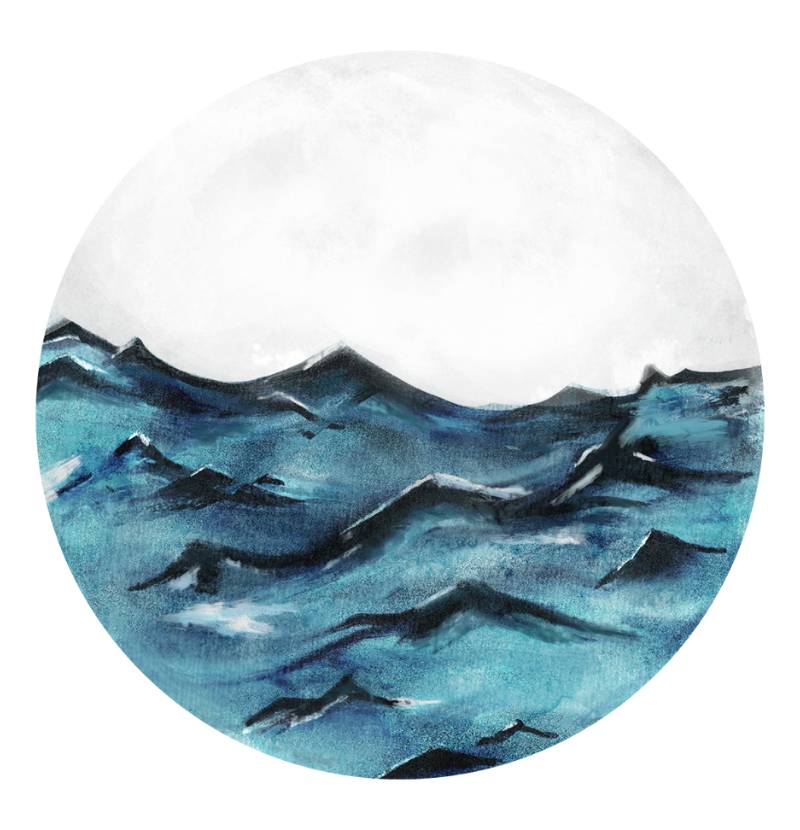
Chinese 5 elements: water
What does being influenced by the Water element say about you?
You have strong willpower, a determined nature, and a tendency to be self-sufficient and independent.
You’re a seeker of knowledge and understanding, not only of the world around you, but also about yourself and what makes you tick.
As a result, you bring sharp, critical thinking to the issues you’re faced with, ask insightful questions, and express yourself skilfully.
On the other hand, you can sometimes be so introspective and focused on your inner world that you become withdrawn from others or speak before you think, without realising that what you’re about to say may ruffle a few feathers! You may also be prone to becoming fearful.
Water rules the kidneys in traditional chinese medicine
In TCM, water rules the kidney organ-meridian system.
In addition to the kidneys themselves and all aspects of urinary function, this organ-meridian system regulates and maintains all the body’s fluids (including tears, saliva and the fluids that lubricate the joints) and balances yin and yang in the body.
The health of the kidneys is also considered vital for that of all other organs and tissues of the body in TCM, especially the reproductive organs, the ears and the bones, so they’re regarded as the foundation of good health.
Another function of the kidney organ-meridian system in TCM is to act as the storehouse for Jing, a form of life force energy that declines with age. The kidneys and water are therefore closely associated with healthy transition through each of life’s stages, from the growth and development that occurs during childhood right through to the ageing process.
As a water person, if you’re out of balance, you may be susceptible to issues that affect the kidney organ-meridian system, like problems with your fluid balance, needing to urinate frequently, reduced libido, or experiencing mild aches and pains in your joints (especially those of the knees and lower back).
Problems characterised by heat and dryness may also occur, reflecting an underlying imbalance in water or moisture in the body.
In women, menopausal symptoms like hot flushes, night sweats and vaginal dryness may be related to imbalances in the kidney organ-meridian system too, and in particular to a deficiency of kidney yin, according to TCM.
Herbs traditionally taken as kidney tonics
Consider taking the herbs goji berry, rehmannia and horny goat weed, which are traditionally used in TCM as kidney tonics. In TCM, goji berry is also traditionally taken to balance yin and yang, and rehmannia and horny goat weed are traditionally used to regulate the fluids in the body. Horny goat weed is also traditionally used to promote a healthy libido, improve bone strength, and relieve mild joint aches and pains in TCM.
Anemarrhena, traditionally used to relieve menopausal symptoms
In menopausal women whose water element is out of balance, kidney yin deficiency is often present. In those circumstances, anemarrhena is traditionally used to relieve menopausal symptoms like hot flushes, night sweats and vaginal dryness in TCM.
Always read the label. Follow the directions for use. If symptoms persist, worsen or change unexpectedly, talk to your healthcare professional.
Lifestyle tips for the water constitution
Preserve your jing
Your primary health goal is to look after your kidney organ-meridian system and preserve your Jing, which may otherwise be prone to depletion as you age. That means a healthy lifestyle that accompanies nutritious food, regular exercise and time in the fresh air should be high on your agenda.
Make sure you drink enough water, and avoid stimulants like coffee, cola and energy drinks too.
Head for the water
You’ll feel at your best when you’re in or near water, so swimming in the ocean or even walking at the beach are great exercise choices for you. And if that’s not possible, treat yourself to a luxurious bubble bath or even just soak your feet in water with Epsom salts.
Other forms of exercise that are beneficial for you are those that have calming effects on the mind and are low-impact on the joints – yoga and Pilates are ideal.
Enjoy blue-black foods and a pinch of salt
The colour black is associated with the Water element in TCM, so include plenty of blue-black foods on your menu. Good options include plums, dates, black beans, eggplant, wood ear mushrooms and black sesame seeds.
The taste associated with the water element is saltiness, so a little bit of salt is considered beneficial for you. You don’t need too much though – you can get what you need by eating naturally salty foods like prawns, or by adding a sprinkling of seaweed flakes to your soup, salad or stir-fry now and then.
Stay socially connected
Although you like to be independent, avoid becoming too isolated. Socialising is good for your physical wellbeing and your mental health, and helps keep you feeling energised and vital, especially as you get older.
References:
- Maciocia G. 2006. The foundations of Chinese medicine (2nd ed). Churchill Livingston, London.
- Chinese Medicine Works. Who am I? Five phase types. Published 2007 and accessed February 2021 from https://chinesemedicineworks.com/wp-content/uploads/2014/06/five_types.pdf
- Kaptchuk, TJ. The web that has no weaver. McGraw-Hill Education, 20




















